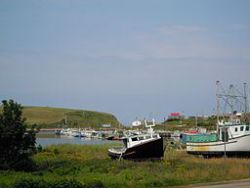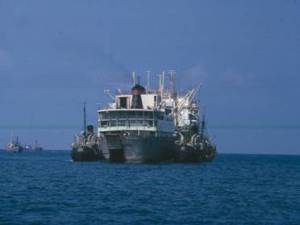Halifax Media Co-op
News from Nova Scotia's Grassroots
Canada Missing Big Opportunity to Support its Small-Scale Fisheries. By Arthur Bull
This blog was originally posted at Small Scales, the excellent East Coast fisheries blog administered by the Marine Issues Committee of the Ecology Action Centre. Follow the always interesting Marine Issues Committee on Twitter..
The vast majority of fisheries in the world are small-scale. These are the community-based, small boat, family-owned fisheries that make up a whopping 90% of the world’s fisheries, fisheries that land more than 2/3 of all the fish caught world-wide, and provide the basic protein needs to literally billions of people. In Canada, the 10,000 owner-operator, small-scale fishermen, make up the backbone of our coastal communities. These facts are well established, so you would think that fisheries managers, government departments and international fisheries bureaucracies would also recognize this reality, and develop policies accordingly. Unfortunately, for many years, the opposite was often true: fisheries management policies have often favoured large corporate, industrial fleets to the detriment of the vast majority of fishing peoples and communities, and many would say, to the detriment of fish stocks.
This situation began to change about five years ago when many governments around the world, and international agencies, began to recognize that small-scale fisheries are not a problem to be solved, but rather a solution to the pressing problems facing our oceans. The Canadian federal government has shown support for policies that support viable, independent inshore fisheries, including the owner-operator policy in Atlantic Canada, and has introduced programs supporting those First Nations’ wishing to gain entry into the commercial fisheries.
Most importantly, this turning point was signaled by a major initiative led by the food agency of the United Nations, the Rome-based Food and Agriculture Organization(FAO) – a set of international guidelines to support small-scale fisheries. This historic turning point was one of the most promising developments in the world’s fisheries for a long time (an area where good news stories have become exceedingly rare). But then things start to go wrong. Just as a draft of these guidelines were about to go back to the FAO fisheries committee this coming June, something unexpected and quite shocking happened: one country out of almost 90 member nation states – Canada – torpedoed the whole process at the very last minute. Because of the rules of procedure, a single country can block the consensus, and therefore prevent the draft guidelines from going forward for approval. Even more unbelievably, Canada blocked the guidelines, not on the grounds of some fisheries policy position, but because of a completely unrelated political issue.
Here’s what happened: A paragraph was inserted into the draft that indicated the protection of the rights of small-scale fisher people includes those in “occupied territories” around the world. Because of these two words, the Government of Canada blocked the consensus on this historic fisheries agreement. No reason was given publicly, but it is clear this is not connected to fisheries.
What is so disappointing about this development is that there had been such a positive process leading up to the agreement, involving more than six years of consensus-building on every continent. This process included Canada, which played an active and constructive role in the process. The Canadian position now completely dismisses this process, not because it opposed the guidelines, but because it wanted to make a diplomatic point.
Someone hearing about this for the first time might ask: so why are these guidelines so important anyway? Aren’t they just more bureaucratic UN rules that no one follows? In fact, small-scale fisheries organizations and fishing communities around the world see these guidelines as a critical breakthrough because they are an international acknowledgement that small-scale fisheries are central to marine conservation, poverty reduction, food security and sustainable coastal communities. Further, the recognition of these guidelines, which are voluntary, would signal an important shift from the view held by many governments that large-scale, industrial fisheries are the way of the future.
Industrial catcher and processing vessels on George’s Bank. Source: NOAA Fisheries Archives
What is so discouraging is that the problem here is not about fishing at all, and that the Government of Canada is showing no interest in working out a solution that will get the guidelines passed. By its actions on this matter, the government of Canada is showing, however inadvertently, how little it values Canada’s coastal communities.
Fishermen, their organizations and their communities will be watching to see how the government handles this. Right now they have dug in their heels, and are refusing to work on a solution. Surely we can do better than this. Canadian delegates who were present at the meeting in Rome have written to Foreign Affairs Ministers Baird andFisheries Minister Shea to urge them to work out a solution, for the sake of small-scale fishing people in Canada and around the world. This letter suggested a positive solution: that Canada’s representative at the FAO in Rome could be given clear direction to sit down and work out a compromise that allows Canada to maintain its foreign policy position, while at the same time supporting the draft guidelines.
Let’s hope they are listening.
Arthur Bull is past President of the Bay of Fundy Inshore Fishermen’s Association, a former Senior Policy Analyst with the Government of Nova Scotia, and a policy advisor to the World Forum of Fisher People.
Check out this previous post on the FAO small scale fisheries guidelines.
The site for the Halifax local of The Media Co-op has been archived and will no longer be updated. Please visit the main Media Co-op website to learn more about the organization.




